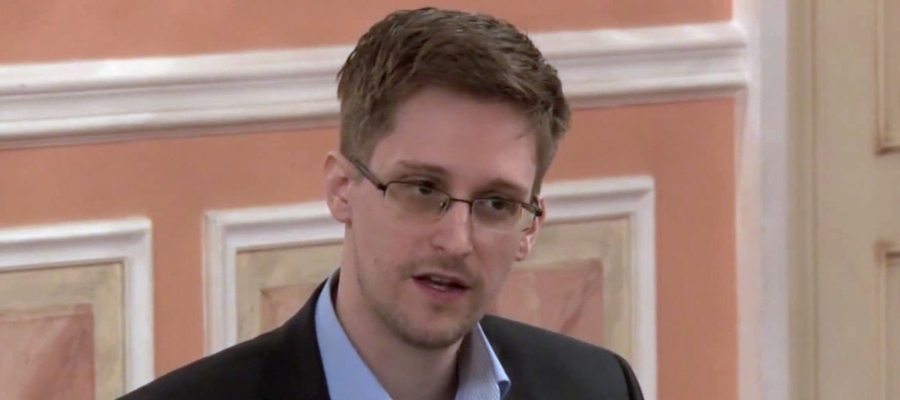 The UN's senior counter-terrorism official is to launch an investigation into the surveillance powers of American and British intelligence agencies following Edward Snowden's revelations that they are using secret programmes to store and analyse billions of emails, phone calls and text messages.
The UN's senior counter-terrorism official is to launch an investigation into the surveillance powers of American and British intelligence agencies following Edward Snowden's revelations that they are using secret programmes to store and analyse billions of emails, phone calls and text messages.The UN special rapporteur Ben Emmerson QC said his inquiry would also seek to establish whether the British parliament had been misled about the capabilities of Britain's eavesdropping headquarters, GCHQ, and whether the current system of oversight and scrutiny was strong enough to meet United Nations standards.
The inquiry will make a series of recommendations to the UN general assembly next year.
In an article for the Guardian, Emmerson said Snowden had disclosed "issues at the very apex of public interest concerns". He said the media had a duty and right to publish stories about the activities of GCHQ and its American counterpart the National Security Agency.
"The astonishing suggestion that this sort of responsible journalism can somehow be equated with aiding and abetting terrorism needs to be scotched decisively," said Emmerson, who has been the UN's leading voice on counter-terrorism and human rights since 2011.
"It is the role of a free press to hold governments to account, and yet there have even been outrageous suggestions from some Conservative MPs that the Guardian should face a criminal investigation. It has been disheartening to see some tabloids giving prominence to this nonsense."
Emmerson's intervention comes ahead of Tuesday's hearing of the home affairs select committee, which is conducting its own inquiry into counter-terrorism.
The Guardian's editor-in-chief, Alan Rusbridger, will give evidence to MPs on the committee on Tuesday afternoon, followed by the Metropolitan police commissioner, Sir Bernard Hogan-Howe, and assistant commissioner Cressida Dick.
Over the past six months the Guardian – along with other international media organisations – has revealed the existence of mass surveillance programmes, such as GCHQ's Tempora, which taps into the cables that carry internet traffic in and out of the UK. Last month the heads of Britain's three intelligence agencies, MI5, GCHQ and MI6, gave evidence before parliament's intelligence and security committee.
During a 90-minute hearing they accused Snowden of leaking material that had been "a gift to terrorists".
But Emmerson said such claims "need to be subjected to penetrating scrutiny".
He said his inquiry will be requiring further testimony from GCHQ's director, Sir Iain Lobban, the director of MI5, Andrew Parker, and MI6 chief Sir John Sawers.
"I will be seeking a far more detailed explanation than security chiefs gave the (ISC) committee. They must justify some of the claims they have made in public, because as matters stand, I have seen nothing in the Guardian articles which could be a risk to national security. In this instance, the balance of public interest is clear."
He added: "When it comes to assessing the balance that must be struck between maintaining secrecy and exposing information in the public interest there are often borderline cases. This isn't one of them. The Guardian's revelations are precisely the sort of information that a free press is supposed to reveal."
Emmerson said nobody had suggested the Mail on Sunday should be prosecuted when it published revelations from the former MI5 officer, David Shayler, and that the attorney general had rightly abandoned a prosecution against Katharine Gun, the GCHQ whistleblower who in 2003 revealed the US and UK were trying to manipulate a vote at the UN security council in favour of military intervention in Iraq.
No jury would ever have convicted her even though she had broken the Official Secrets Act, Emmerson said.
"The Guardian has revealed there is an extensive programme of mass surveillance which potentially affects every one of us, but has been assiduous in avoiding the revelation of any detail which could put sources at risk. The Mail on Sunday, on the other hand, published material that was of less obvious public interest."
Emmerson said the Snowden disclosures had caused reverberations across the world.
"There can be no doubt the revelations concern matters of international public interest. Wholesale reviews have been mooted by President Obama, Chancellor Merkel and Nick Clegg. In the US, a number of the revelations have already resulted in legislation.
"In Europe, the political class is incandescent. Many states have registered serious objections at the UN, and there are diplomatic moves towards an international agreement to restrict surveillance activity."
Chaired by Keith Vaz, the home affairs select committee called for the Guardian to give evidence following the ISC hearing.
However, a number of civil liberties groups and campaigners have raised concerns about the intense political pressure put on the Guardian, and condemned the UK government's demand that it destroy the Snowden files it was researching in the UK.
The freedom of expression group Article 19 and the Open Rights Group are among two signatories to a letter sent to Vaz ahead of Tuesday's session.
They describe their deep concerns that the review of the Guardian "could restrict media freedom in the UK by discouraging future reporting on important matters of public interest".
The letter calls on MPs to take into account "international human rights standards, and in particular those that relate to the right to freedom of expression and media freedom".
Source: theguardian.com
Author: Nick Hopkins and Matthew Taylor
No comments:
Post a Comment